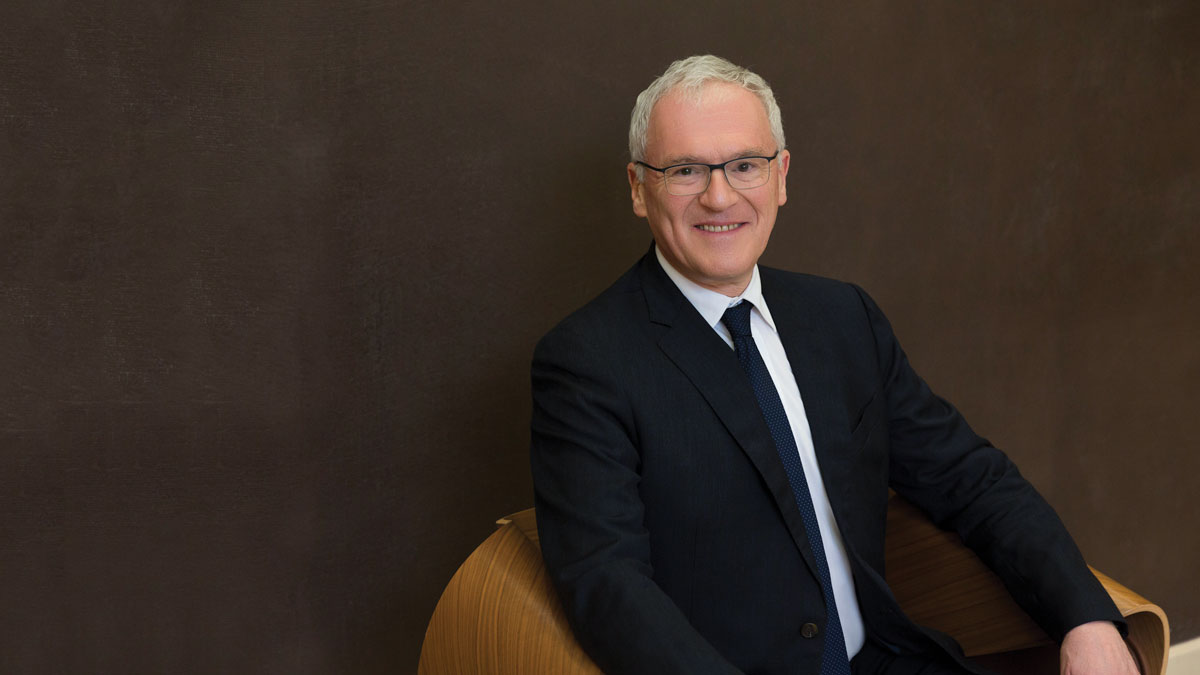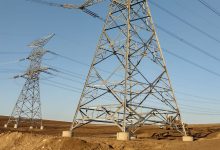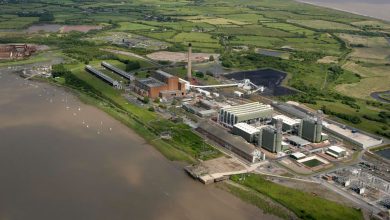TALKING TO EXPERTS: Jean-Bernard Lévy, President of Eurelectric, Chairman & Chief Executive Officer of EDF Group
Decarbonising Energy Systems, Part of the Solution to the Fight Against Climate Change
Jean-Bernard Lévy was appointed Chairman & CEO of EDF Group on 26 November 2014. Previously he was the Chairman & CEO of Thales, a leading electronics and systems industrial group.
On 20 May 2021, Jean-Bernard Lévy was elected President of Eurelectric, the association representing the European power sector which brings together more than 3,500 companies in power generation, distribution, and supply.
In an in-depth dialogue, Mr. Jean-Bernard Lévy discusses how to decarbonise our energy systems, as part of the solution to the fight against climate change, the EVs revolution and how to tackle the surge in energy prices.
Dear Mr. Lévy, how do you define the role and responsibilities of Eurelectric in establishing and promoting low-carbon energy mix for a sustainable future?
Jean-Bernard Lévy: Eurelectric is a front runner in the energy transition – a fact demonstrated by our sector’s very real efforts to be carbon neutral well before 2050, and to power homes, businesses, and industry across Europe with decarbonised electricity. By 2035-2040, 85% of Europe’s electricity can be carbon-free. As a sector, we are committed to investing in clean and renewable energy technologies, promoting the benefits of electrification, and building cross-industry partnerships to support the overall decarbonisation ambitions.
Cooperation is key to achieve a sustainable future driven by a carbon neutral energy mix. On one side, we are working with policymakers to ensure the adequate regulatory frameworks that enable the necessary investments to accelerate the energy transition. On the other hand, we are engaging with adjacent sectors – like transport, buildings, energy intensive industries – to support their transition to carbon neutrality via electrification. Last but not least, we are committed to engaging with consumers and providing services and solutions that empower them to play an active role in the energy transition.
For instance, across the EU, 36% of GHG emissions come from buildings, where fossil-fuelled heaters are widely used. The integration of electric technologies can lower the carbon footprint of buildings, while increasing energy efficiency, reducing air pollution, and improving living conditions. Heat pumps have an efficiency of 400%, meaning they can produce up to four units of heat for each unit of electricity consumed, while conventional gas boilers have a 90% efficiency. Even higher benefits can be achieved in combination with solar panels, batteries, and integrated energy management systems.
The EU Taxonomy could play an important role, helping the EU scale up sustainable investment and implement the European Green Deal. Do you think combining nuclear and renewable energies is a viable method of electrical production?
Jean-Bernard Lévy: In 2020, carbon-neutral energy sources represented 63% of the electricity generation mix of the EU. Of that figure, 39% came from renewables and 24% from nuclear. But as the next decade approaches, we are looking towards a system with a higher share of renewables, a shift that is being driven by significantly untapped potential and rapidly falling costs.
By 2045, our electricity mix will be carbon neutral; renewable energy sources (RES) will make up the bulk of generation. Coupling them with firm, dispatchable capacities such as hydro or nuclear, storage solutions, and increasing the interconnections between countries, will contribute to ensuring that the system has reliability and flexibility, while enabling customers to benefit from the cleanest electricity ever.
Investment in clean energy must triple by 2030 to curb climate change, says IEA. How do you see this versus development of the EU economy with competitively priced clean electricity?
Jean-Bernard Lévy: Europe has had a wake-up call. The war waged by Russia in Ukraine, as well as the fossil fuel price volatility we have witnessed in recent months, have triggered a shift in EU policy. Member States urgently need to wean themselves off fossil fuels and speed up the rollout of clean energy alternatives.
Electrification, along with decarbonisation of the power sector, is vital for a carbon-neutral EU economy and energy independence. The sector is committed to fighting climate change. To continue and expedite this transition, however, we need to increase investments in clean generation and storage to approximately EUR 100 billion per year. In addition, EUR 34-EUR 39 billion annually are required for the distribution networks. And while this may seem like a significant challenge, the societal benefits in relation to sustainability, economy, and competitiveness accompanied by this transformation will outweigh the economic impacts.
Experts say decarbonisation of our energy systems is part of the solution to climate stabilisation. What is Eurelectric’s approach in this regard?
Jean-Bernard Lévy: As global temperatures increase, our vulnerability to extreme weather events will keep growing. More intense storms, prolonged heatwaves, wildfires – these are increasing in frequency and intensity due to climate change. Decarbonising our energy systems to lower GHG emissions across the economy is therefore vital. Electrification is the most cost-effective solution to cut reliance on fossil fuels, reduce our emissions, and mitigate the damage being done by anthropogenic GHGs.
What had until recently been Europe’s decades-long pursuit of a green agenda to replace fossil fuels with clean sources of generation and storage has become a matter of wartime urgency. Recent developments have shown that dependence on fossil fuels carries a far greater societal and economic price tag than net-zero efforts. Accelerating the transition to clean and renewable energy sources has become not only a means to fight climate change, but to achieve our energy independence. Positively, the European Commission’s REPowerEU communication on how to make Europe independent from Russian fossil fuels before 2030, seeks to phase out Russian gas, while speeding up the rollout of renewables and electric solutions for residential heating. Beyond their immediate impact in cutting our fossil fuel imports, they will have long-term benefits for climate action.
The EVs revolution is here. What are the challenges and opportunities (charging needs, the impact on electricity load, technology solutions, etc.) for business in this sector?
Jean-Bernard Lévy: We know from Eurelectric’s recent joint report with EY, entitled Power sector accelerating e-mobility, that there will be 130 million EVs in Europe by 2035. When you think of the current figure of 3.3 million, that is a massive increase in a relatively short period. So, of course, this new era of transport requires a lot of work and planning.
Firstly, the rollout of charging infrastructure must keep pace with the growth of the EV market. By 2035, we will need 65 million charging points across the continent – about 85% of which will be residential. Here, again, we are seeing bottlenecks that need to be addressed, including permitting and grid connection delays of up to 36 months, funding constraints, availability, and access to real-estate in strategic charging locations and interoperability restrictions.
While the existing grid will be able to cope with the mass transition to EVs, planning and coordination are still needed to ensure that it can manage future peaks in energy demand.
Distribution system operators will ensure EVs can optimally charge, while keeping the lights on. By using innovative management tools and technologies to control the time and length of charging. Smart charging already allows EV charging to be intelligently controlled, so that it takes place when the generation of clean, renewable energy is higher, or when there is reduced demand and electricity is cheaper.
And it is here that EV drivers will have a chance to play their part, by charging at off-peak hours and overnight. Beyond that, as smart-charging technologies become more sophisticated, vehicle-to-grid (V2G) solutions will allow power stored in EVs to be pushed back to the grid or to a building, to balance energy production and consumption.
The EU is facing a sharp spike in energy prices. How should policymakers and institutions tackle energy price inflation?
Jean-Bernard Lévy: Europe must protect itself against fossil fuel price volatility, which has prompted the energy price increases we’ve seen across the continent. The root cause of this issue must be tackled now – this means Europe weaning itself off imported fossil fuels.
From our viewpoint, not only is electrification the optimal solution to meet Europe’s decarbonisation targets, but it will also ensure energy sovereignty.
Direct electrification can substitute gas and oil for heating and transport purposes, thereby significantly reducing our reliance on foreign powers. As well as that, long-haul transport and industry can benefit from indirect electrification if solutions for the conversion of clean electricity into fuel sources like hydrogen are incentivised.
In the more immediate future, we must work together to protect customers, speed up energy efficiency measures and ensure public acceptance of the energy transition. Therefore, the measures included in the European Commission’s Toolbox to alleviate consumer burden should be prioritised. This should involve either direct financial support to vulnerable customers or structural reductions of taxes and levies on electricity bills.
In addition, we believe that policymakers should refrain from distortive ad-hoc interventions such as claw back measures, which act as a deterrent to investment in clean and renewable energy projects. Any interventions should tackle the root cause of the energy price increases. These emergency measures, which should be implemented only in extraordinary circumstances, must be harmonised, and coordinated at EU level to avoid market fragmentation. Moreover, they must be temporary, technology-neutral, and non-retroactive.
What are Eurelectric’s short, medium, and long-term goals/main priorities?
Jean-Bernard Lévy: The pandemic, the energy crisis, the war in Ukraine. Three global shocks, which came in quick succession, revealed one every important point: the future does not wait for us. Indeed, the same applies to climate change.
Therefore, the need to work harder and faster to end our addiction to imported fossil fuels, cut our emissions, and make Europe energy independent, is more urgent than ever before. In this matter, enabling faster permitting procedures is key to accelerate the rate of deployment of renewable and carbon neutral energy sources.
The power sector, with its range of low-carbon and energy efficient technologies, digital solutions, and ability to innovate, can help all EU citizens benefit from an affordable, climate friendly and comfortable lifestyle. At the same time, industries can cut their emissions and benefit from efficiency gains through direct or indirect electrification.
But customer buy-in is essential. As individual consumers and businesses feel the pinch of higher energy prices, we must continue to promote the Green Deal as a social, industrial, and strategic opportunity for all Europeans. In addition, we will keep calling out the discriminatory energy taxation hampering electrification and support the deepening of competitive integrated EU electricity markets and meaningful carbon pricing.
To help Europe wean itself off fossil fuel imports, Eurelectric will continue to champion and push for the rapid deployment of renewables, smart grids, and the uptake of electrolytic hydrogen applications, where direct electrification is not possible, while fostering smart integration and highlighting the benefits of digitalisation.







